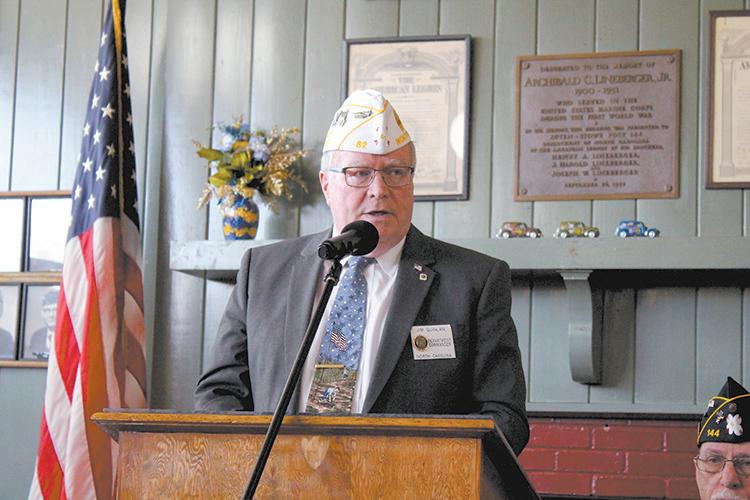
10 minute read
See POST 144
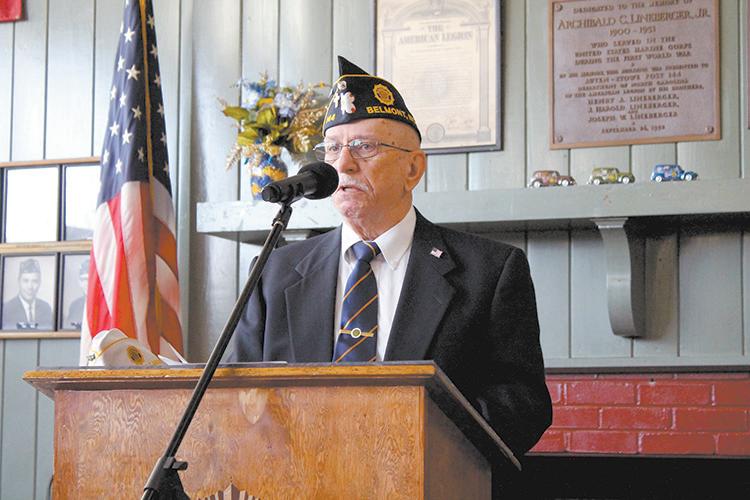
The anniversary cake. Post 144 commander Barry Smith addresses the crowd. American Legion NC commander Jim Quinlan speaks. BSA Troop 56 members Jesse Whaley and Logan Lacata greeted attendees.
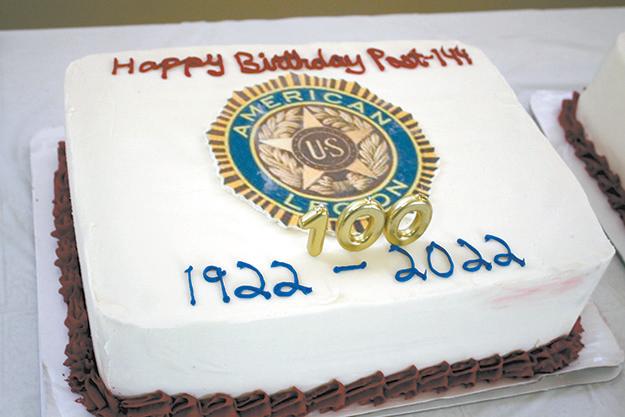
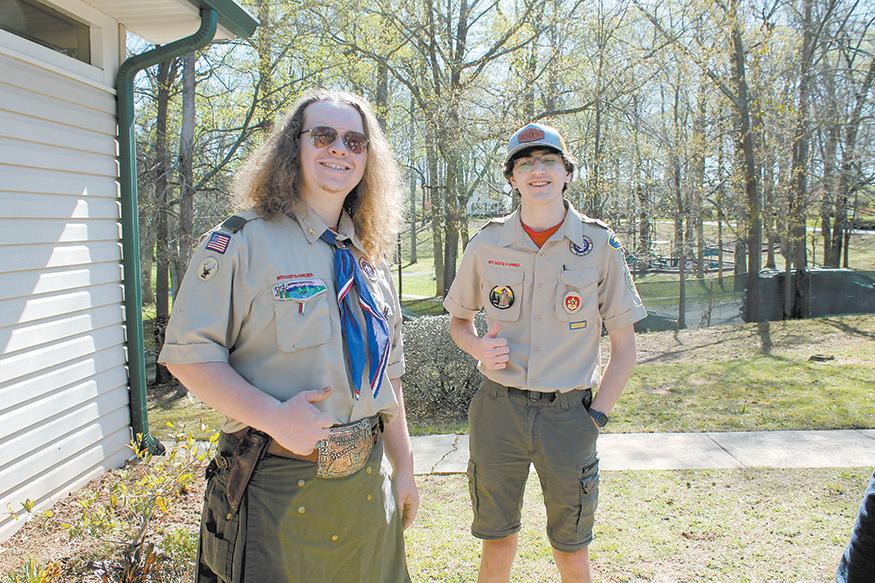
POST 144
From Page 1
Connie Atkins and Courtney Bowne sang patriotic songs. Rev. Joe Lawing delivered a heartfelt invocation.
Following the speeches, everyone attacked the two 100th anniversary cakes, washed them down with plenty of soda pop, and enjoyed a beautiful spring morning with plenty of Belmont-style “liberté, égalité, fraternité” (that’s liberty, equality, fraternity” in French).
A Brief History of Post 144
Post 144 got its start on March 20, 1921 when a group of WWI Belmont veterans decided to form an Ameri-
can Legion Post. It was decided to name it after two Belmont lads who had been killed in the war- William Auten and Charles Stowe. A year later, March 29, 1922, Post 144 received its charter.
For many years, Post 144 members met at a building called the “Community Center”. In 1952, the headquarters were located to its current location on Park Dr. near Davis Park.
Over the decades, Post 144 has been active in many civic affairs. In 1922, it organized the first volunteer fire dept. in Belmont. The group was instrumental in seeing that a memorial was built in Greenwood Cemetery honoring local WWI soldiers who had been killed in action. This monument was dedicated on August 15, 1922. Post 144 has also made it possible each year since the 1960s for local students to attend the oneweek Boys and Girls State seminar held at Catawba College. This program allows the students to study politics and government during their stay.
Post 144 was also active in the campaign that saw the Spirit of the Fighting Yank WWII memorial statue moved from its former location at Belmont Middle School to front and center at Stowe Park. Seeing the statue in its current location is a highlight of any visit to downtown Belmont.
Each Memorial Day, Post 144 places American flags on veteran graves in Greenwood Cemetery and other locations. It also organizes Memorial Day and Veterans Day events.
Baseball has been a big part of Post 144’s legacy. It has sponsored team since the 1930s and is still active in baseball to this day.
Each year Post 144 holds a gala Christmas celebration. Traditionally, an outstanding local citizen receives the Community Service Award at the event.
Currently, Post 144 has over 200 members who share a strong bond of comradeship and camaraderie.
Also, here’s a list of upcoming Post 144 events
Memorial Day Weekend - put out flags and breakfast.
Gun Raffle tickets begin sales in June - Drawing TBD.
August 27 - 100th year of Post 144 receiving charter from National American Legion, September 17th - Fish Fry.
October 8th - SAL Golf Tournament (this date is tentative).
November 11th - Veterans Day.
December 10th - Army/ Navy football game.
Also remember that regular meetings are the first Thursday of each month at 7:00 PM, but do not meet in July or December.

Mickey Lineberger, Jeff Gibson, Rev. Joe Lawing and Kent Hyde chatting before the Post 144 event.
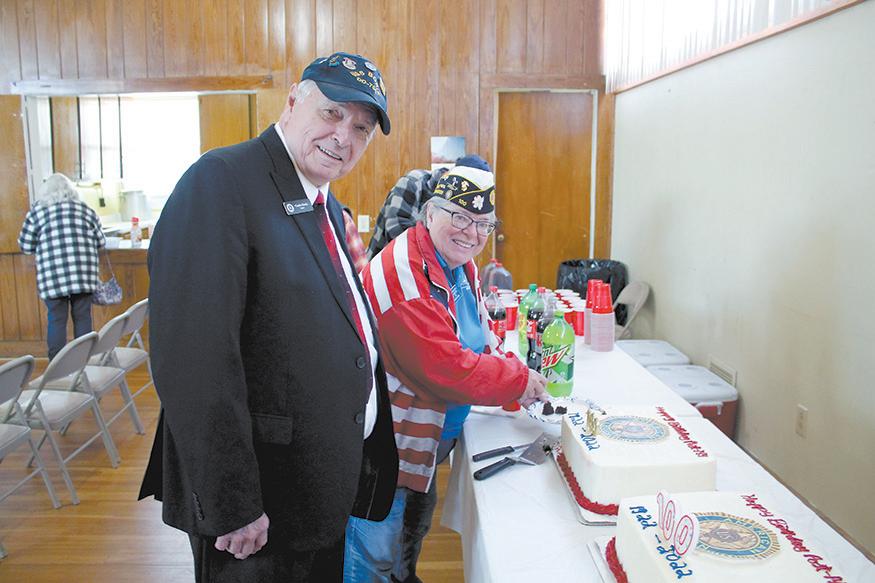
Belmont mayor Charles Martin and Monica Lockwood cut the cake. Monica Lockwood, vice commander NC Dist. 22 looks at the plaque in front of Post 144.
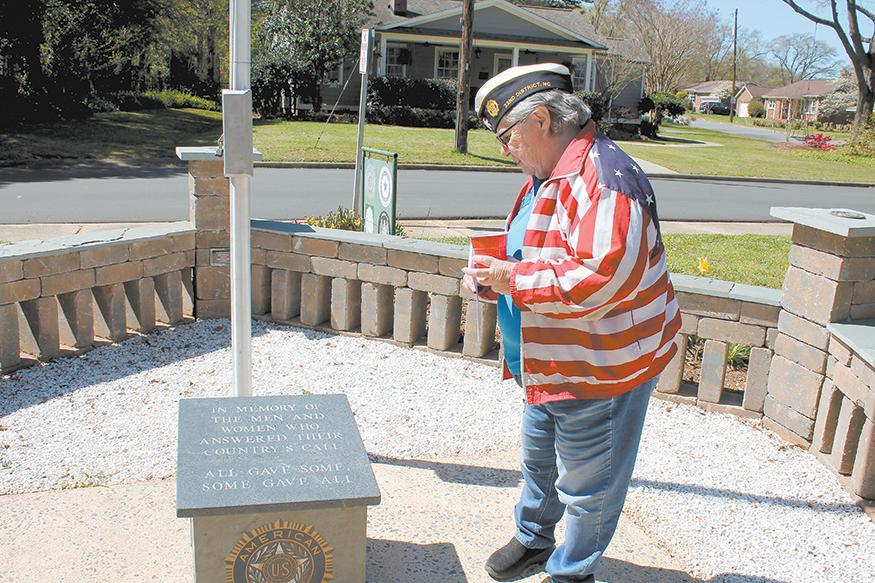
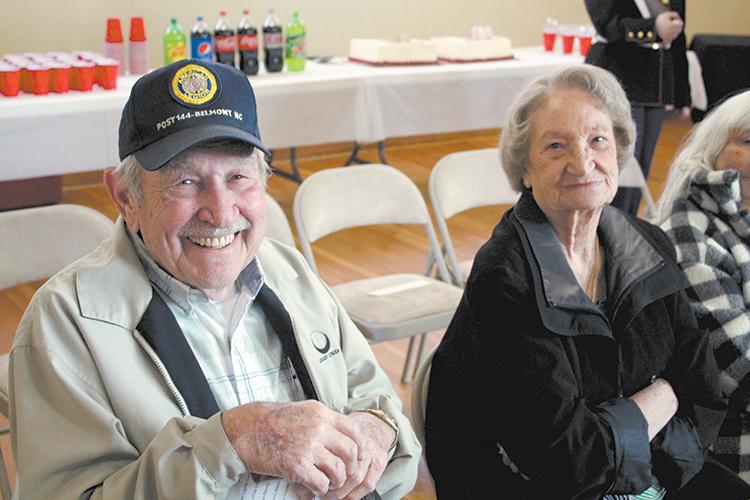
Post 144 members Jim Payne and Pat Chaparro.
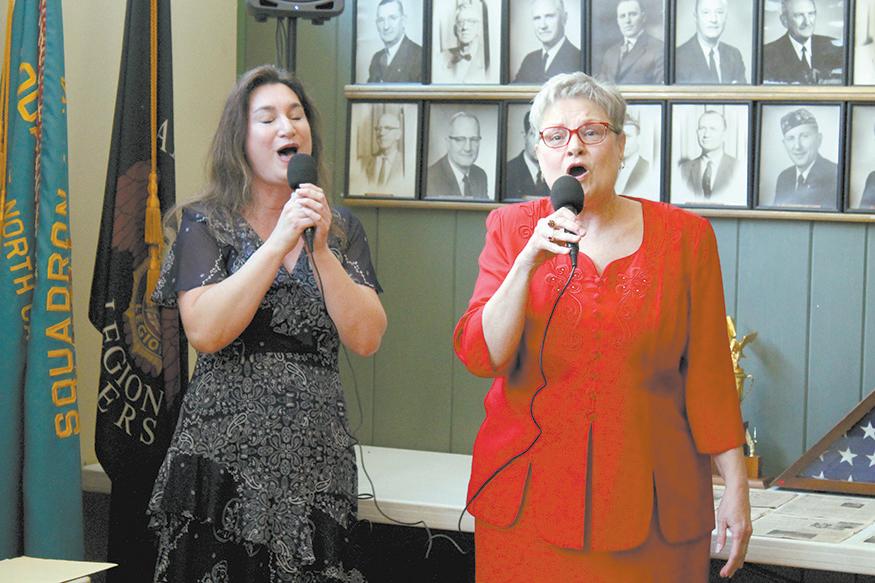
Courtney Bowen (left) and Connie Atkins singing “God Bless America”. The East Gaston High JROTC color guard
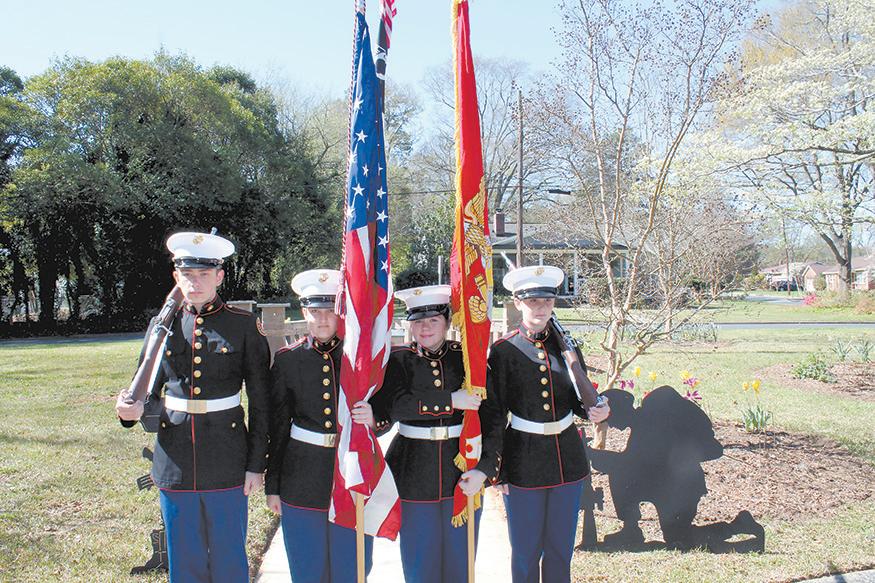
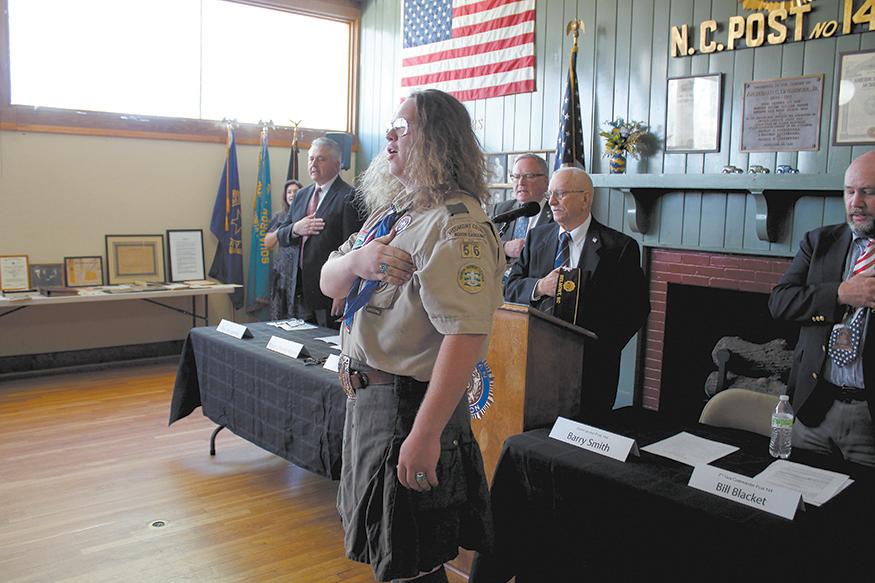
Jesse Whaley leads the Pledge of Allegiance.
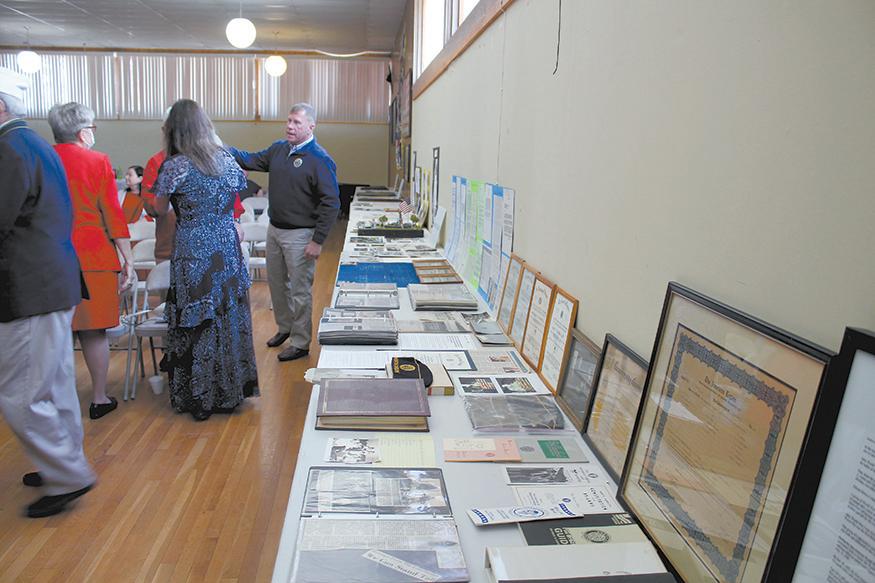

Tips for planting a bee-friendly garden in North Carolina
Story by Jodi Helmer
Courtesy Ourstate.com
Watching bees buzz around the garden is not just proof that spring has arrived; it’s a sign that important work is happening.
Bees are pollinators. In the process of gathering nectar from flowers, bees spread pollen, which is essential for producing some of our favorite foods. Without bees, there would be no cocoa, coffee, blueberries, avocados, Brazil nuts, or countless other delicious and nutritious foods.
North Carolina is home to more than 500 native bee species — and they’re at risk. Bee populations have plummeted by upwards of 30 percent across various regions in North America and Europe. While the situation is troubling, you can take action in the garden to support bees.
Here are seven ideas to help you protect bees: 1. Garden with native plants
Native plants are those that are indigenous to a specific region and adapted to its growing conditions. In North Carolina, species like purple coneflower, bee balm, great blue lobelia, and goldenrod thrive in gardens and provide food and habitat for native pollinators.
Debbie Roos, an extension agent at the Chatham County Center of the North Carolina Cooperative Extension, planted more than 190 native species in the “Pollinator Paradise” demonstration garden she created in Pittsboro to showcase the beauty of North Carolina native plants.
“You’re not sacrificing beauty when you choose native plants,” she says.
Roos maintains a list of her top 25 native plants at CarolinaPollinatorGarden. org.
The nonprofit Pollinator Partnership also publishes regional planting guides on its website. Enter your zip code to access a comprehensive list of pollinator-friendly native plants specific to your region. 2. Choose the best colors
When it comes to foraging, bees and other pollinators have color preferences.
One study found that certain colonies of buff-tailed bumblebees prefer violetcolored flowers the most. It appears that flowers in this cool hue produce far more nectar than flowers of other colors, allowing bees to harvest more from these blooms.
When choosing native plants, keep their color in mind and choose purple and blue when you can (but remember that bees will gather nectar from flowers in all of the other shades of the rainbow, too). 3. Plant for all seasons
A garden that blooms in spring, summer, and fall is beautiful and productive. Pollinators depend on continual blooms for habitat and food and will suffer in a garden that blooms beautifully in spring but goes dormant when summer is over.
Roos recommends planting at least three to five species that bloom in each season. Virginia spiderwort, wild indigo, and foxglove beardtongue are good options for spring. St. John’s wort, buttonbush, and mountain mint bloom all summer long. Meanwhile, spotted horsemint, aster, and joe-pye weed are great fall bloomers.
“Having more than one species blooming in every
Catawba Riverkeeper has reopened its outfitter and kayaking hub in McAdenville
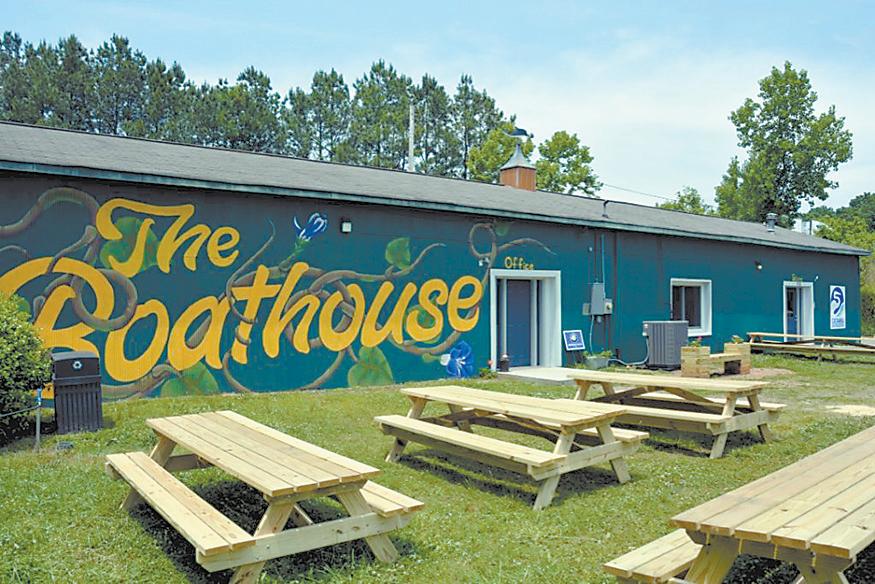

Catawba Riverkeeper has reopened The Boathouse at 115 Willow Drive, McAdenville. The Boathouse serves as a place for Catawba Riverkeeper to engage local residents in the mission to protect clean water through kayak rentals, educational programs, and special events.
Inside the multi-service venue, guests will find outdoor gear and apparel plus a selection of local craft beer, seltzer, and soft drinks. Just outside the door, guests are encouraged to explore the 2-mile South Fork River Trail or paddle along the South Fork from the R.Y. McAden Canoe and Kayak Launch.
Catawba Riverkeeper’s kayak rental service is at The Boathouse. Rent a kayak, canoe, or standup-paddleboard for a 90-minute flatwater paddle experience on the South Fork River. Boathouse rentals are offered from 10 a.m. until 4 p.m. every Saturday and Sunday until Sep-
The Boathouse at 115 Willow Drive, McAdenville.
tember.
John Searby, Executive Director shares his excitement for the new season by saying, “We are so excited for the reopening of The Boathouse! In 2021 we were able to connect people with our mission to preserve, protect, and restore our waters through fun and engagement with the water and we can’t wait to expand on that in 2022. I can’t wait for everyone to experience the upgrades we’ve made and once again enjoy relaxing after a great day on the water or on the trail. We hope to see everyone for a weekend outing or a Jam at the Dam soon.”
You can learn more about the season opening and upcoming events at The Boathouse by visiting theboathouse.catawbariverkeeper.org. season attracts a diversity of pollinators to your garden,” she says. 4. Install housing
Most pollinators depend on plants for habitat. Some bees, like mason bees, will build nesting sites in insect holes and hollow stems. These so-called cavity dwellers will also move into bee houses made from bamboo reeds, holes drilled in wooden blocks, and other creative cavities you provide.
You can buy mason bee houses at garden supply stores. The National Wildlife Federation also has instructions for DIY versions.
Your bee hotel should be hung on a post facing east or southeast. A western exposure will leave the bees baking in the afternoon sun, Roos says.
“Our bees are losing habitat,” Roos says. “A bee hotel is a way to help you provide habitat and invite important pollinators into your yard.” 5. Set up a bee bath
Spreading pollen and gathering nectar can make bees work up a thirst. A “bee bath” gives bees a place to get fresh, clean water.
Fill a shallow container with water and several pebbles or twigs for bees to land on (and keep from drowning) while drinking. Make sure to keep the container filled with fresh water so the bees have a reliable source of drinking water. 6. Steer clear of chemicals
Pesticides are designed to kill insects — lest we forget that many pollinators, including bees, are insects. In fact, researchers at Harvard University linked colony collapse disorder, the inexplicable death and disappearance of honeybees from their hives, to a class of pesticides known as neonicotinoids.
“Part of caring for pollinators is being careful about the products you use in the garden,” Roos says.
Avoiding chemicals is the best approach, but if pesticides are needed, Roos advises not spraying plants that are in bloom and regularly visited by pollinators. Applying pest control in the evenings gives residues a chance to dissipate before bees make their morning rounds. 7. Get certified
You can demonstrate your commitment to pollinators by getting your garden certified.
Penn State University offers Pollinator Garden Certification and the Pollinator Partnership offers the Bee Friendly Garden certification program. For a small fee — which supports pollinator protection — you’ll get a sign for your garden that lets the neighbors know you’re making a conscious effort to protect bees and other pollinators. It might just encourage them to take action, too.
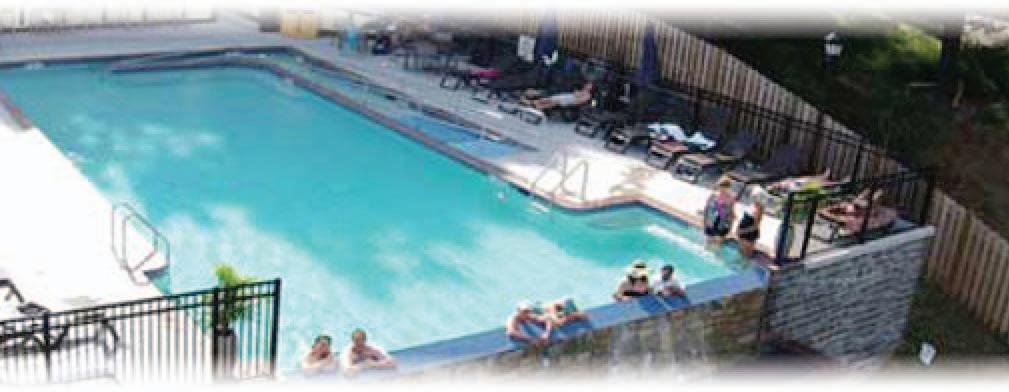
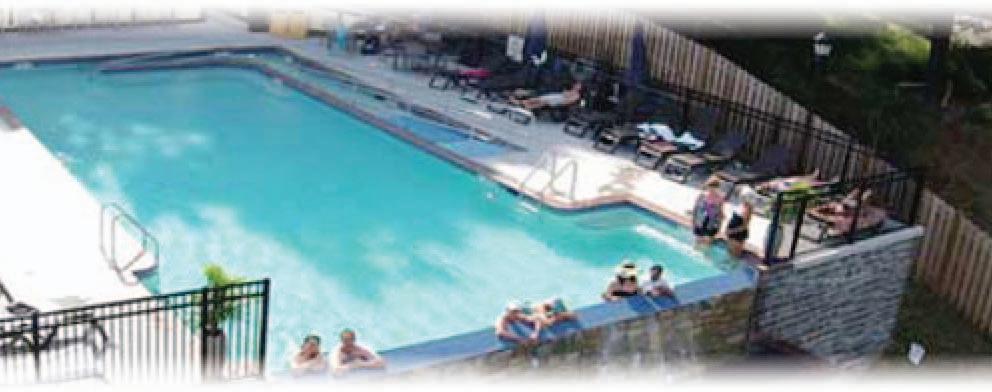
SOUTHERN
EQUIPMENT RENTALS
Residential & Commercial Sales & Rentals Residential & Commercial Sales & Rentals
Whetstine Pools
• Water Testing Water Testing • Pool Supplies • Pooling Installs • Pool Chemicals
10% Discount
With This Ad
1740 Fallston Road, Shelby, NC • 704-406-9292
www.serentals.com • serentals@comporium.net serentals@comporium.net
PROTECT YOUR HOME TODAY! WE OFFER QUALITY FOUNDATION WATER PROOFING SERVICES WATERPROOFING


RESIDENTIAL COMMERCIAL Pest Control, Inc.
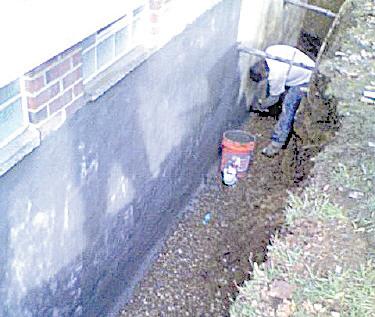
©CommunityFirstMedia
704-862-0770



